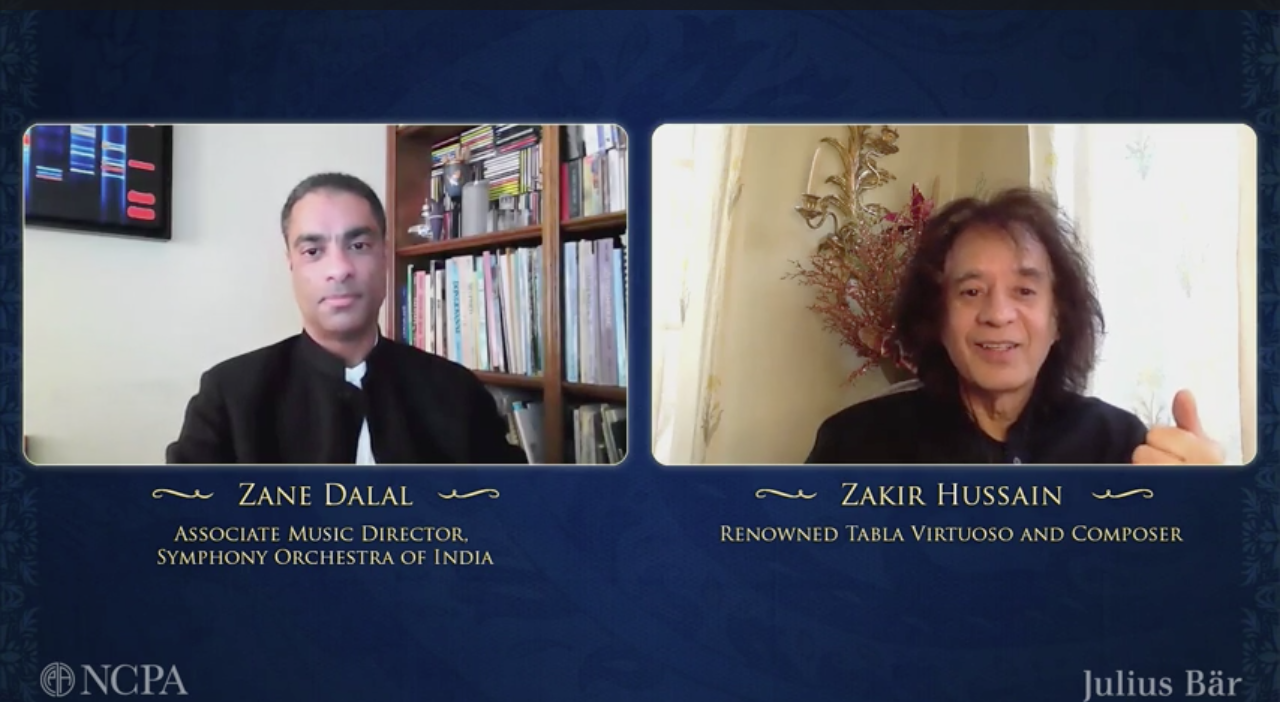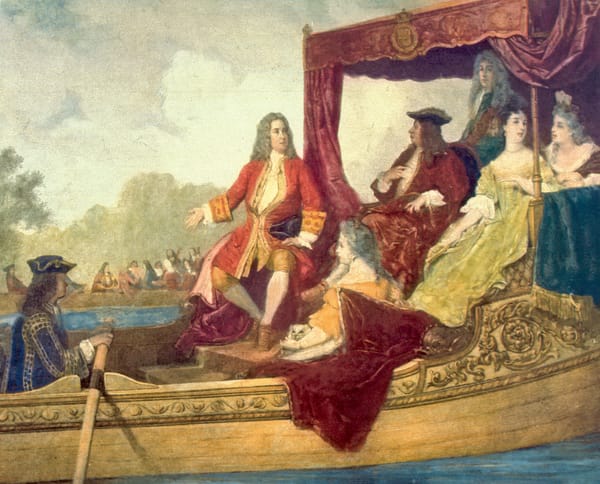In Conversation: Zakir Hussain and Zane Dalal

The first in a series of talks with renowned artistes presented digitally by the NCPA saw Zakir Hussain and Zane Dalal discuss the convergence and divergence of Indian and Western classical music traditions, and the power of art to unify and overcome hardships.
When two artistes deeply passionate about their art forms engage in a conversation, the whole turns out to be stimulatingly greater than the sum of the parts. This has been the driving force behind such discussions regularly organised by the NCPA and enthusiastically attended by the audience. In Conversation, a series of talks with renowned artistes across genres presented on a digital platform by the NCPA, takes off from this idea. On 15th December 2020, pre-eminent tabla virtuoso Zakir Hussain and Associate Music Director of the Symphony Orchestra of India (SOI), Zane Dalal, engaged in the first discussion under the series, from their respective homes in California, speaking through a digital platform and responding to the questions of an audience based in India. The conversation was presented in association with the Julius Bär Group, the 130-year-old, prestigious Swiss bank, which is the largest foreign private wealth management firm in India.
The acclaimed musicians share a long-standing relationship with the NCPA. In fact, Hussain’s association with the organisation goes back to the day of its inception when he performed with his father and tabla legend Allarakha and sitar virtuoso Ravi Shankar. In 2019, when the NCPA celebrated its golden jubilee with the multi-genre, three-day ADD ART Festival, Hussain presented a tribute concert to Allarakha as part of his birth centenary year—a fitting way to commemorate the two milestones. Dalal joined the SOI in 2006, in the year it was founded by Chairman of the NCPA, Mr. Khushroo N. Suntook, and renowned violin virtuoso Marat Bisengaliev. In 2015, Dalal conducted the world premiere of a new tabla concerto, Peshkar, composed by Hussain, commissioned by the SOI, in Mumbai and on tour in Switzerland. He led the London premiere of Peshkar with the BBC Concert Orchestra at Royal Festival Hall. Having worked together numerous times in India and across the world—the SOI has performed three of Hussain’s compositions—they spoke about diverse subjects rooted in the conditions artistes find themselves in today, in their signature candour and camaraderie.
The conversation began with Hussain paying his respects to distinguished dancer and choreographer Astad Deboo, who passed away last month. It then veered towards the pulse of Hindustani music today given what it is going through. “The Western tradition needs its audience but to a lesser extent than the Hindustani musician who during the performance is connected to the listeners in a visceral way,” Dalal pointed out. Hussain spoke of the void he felt in the initial phase of the lockdown that made way for a revelation.
“I realised this is so close to chilla, a 40-day ritual that most Indian classical musicians go through where they go into seclusion to work out problems they may have come up against in their music. I found myself reminiscing about my time with my father when I was seven years old and he would wake me up at 3 am to teach me. I revisited those times and his words to find a new interpretation of what he was trying to tell me.”
He, however, added, “I am thankful I had the time to do that. Indian musicians in India have a hard time. They live on a day-to-day basis, going out to teach or perform. Many of them don’t have facilities that we have.”
Both Hussain and Dalal agreed that for the arts and organisations, such as the NCPA, to be able to emerge from this situation, support from the audience is of critical importance. Dalal underlined the history of plagues and how humanity has always emerged triumphant, going back to the way the world was. He also gave a pertinent example of the role of the arts in such trying periods of time. “When China overcame SARS in 2003, it experienced the biggest boom of opera house and symphonic hall building the world has ever seen,” he said. Hussain added, “Art and culture defines us. It announces to the world what we are all about. It is important that we support it, nurture it. Let us not forget that at some point, we will get into a concert hall. And when that happens we must buy our tickets and attend a concert. It is the only way to support and nurture the keepers of the arts.”
This piece was originally published by the National Centre for the Performing Arts, Mumbai, in the January 2021 issue of ON Stage – their monthly arts magazine.





